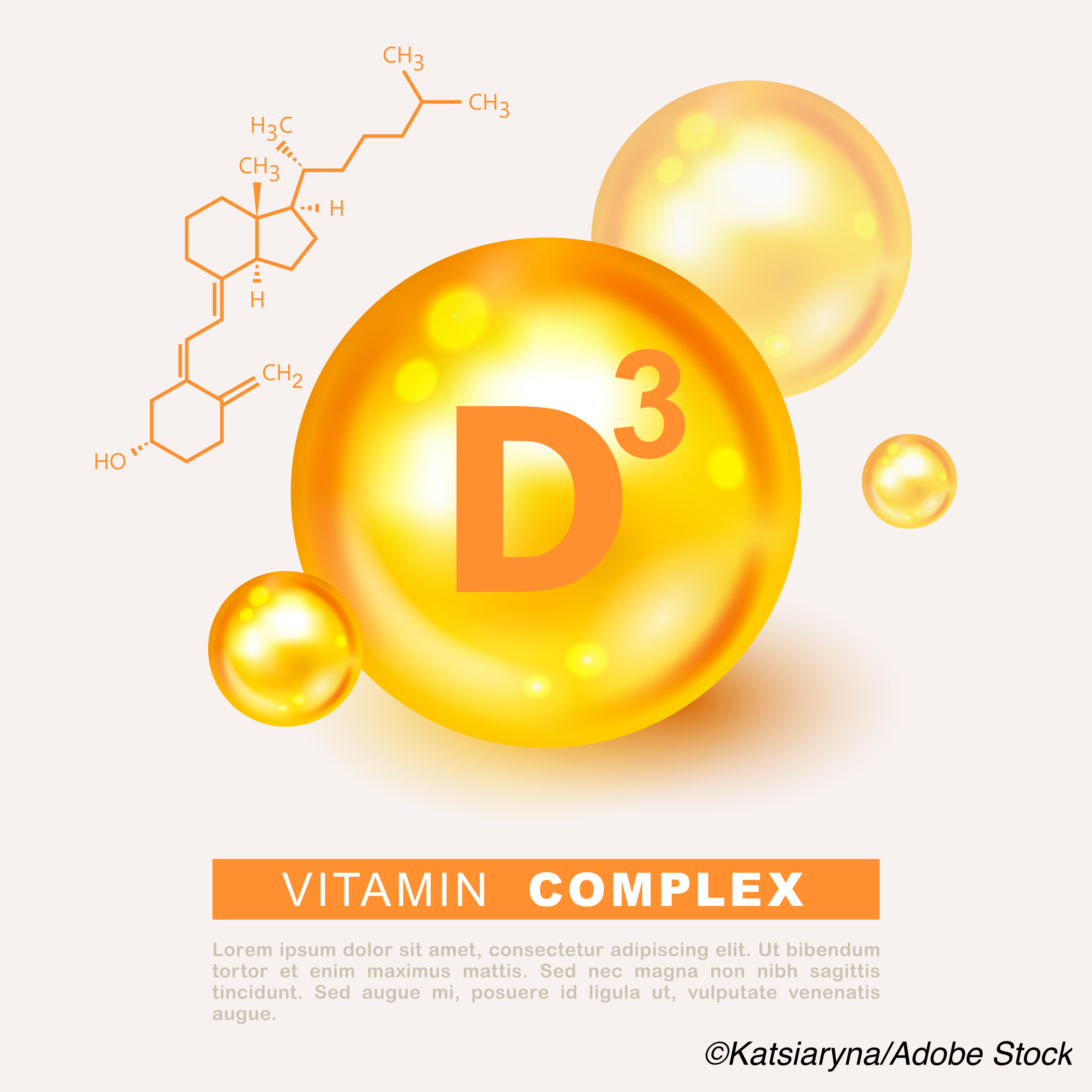Daily treatment with marine omega-3 fatty acid or vitamin D3 did not reduce the risk of incident atrial fibrillation (AFib) over median 5.3-year follow-up compared with placebo, the VITAL Rhythm study showed.
“The findings do not support the use of either agent for the primary prevention of incident AFib,” reported Christine Albert, MD, MPH, of Cedars-Sinai Medical Center in Los Angeles, and co-authors in JAMA.
VITAL Rhythm was an ancillary study embedded within the VITAL trial, which used a 2×2 factorial design to evaluate vitamin D3 (cholecalciferol) and marine omega-3 fatty acid (eicosapentaenoic acid [EPA] and docosahexaenoic acid
[DHA]) supplements in the primary prevention of cancer and cardiovascular disease.
Albert and colleagues analyzed data from 24,127 patients 50 or older with no prior cardiovascular disease, cancer, or stroke. They found incident AFib in 900 (3.6%) of the overall cohort. Participants were randomized to both agents (n=6,272), one agent (EPA-DHA n=6,270; vitamin D3 n=6,281), or placebo only (n=6,296). Daily doses for the omega-3 supplement were 460 mg EPA and 380 mg DHA, and for vitamin D3 2,000 International Units.
For placebo, incident AFib occurred in 431 people (3.4%) For EPA-DHA, incident AFib occurred in 469 (3.7%; HR versus placebo 1.09, 95% CI 0.96-1.24, P=0.19). For vitamin D3, incident AFib occurred in 469 (3.7%; HR versus placebo 1.09, 95% CI 0.96-1.25, P=0.19).
Among participants treated with both EPA-DHA and vitamin D3, HR for incident AFib was 1.20 (95% CI 0.99-1.45, P=0.06). There was no evidence for a treatment interaction between vitamin D3 and EPA-DHA (P=0.39 for interaction).
“While there were no significant differences in incident AFib for either agent in the overall study population, an increased risk of incident AFib associated with randomized treatment was observed in selected subgroups,” Albert and co-authors noted. “For omega-3 fatty acids, AFib risk was modestly increased in taller individuals, and for vitamin D3, elevations in AFib risk were observed in younger individuals and participants who drank less alcohol.”
“These findings should be interpreted with caution and considered hypothesis generating,” they added.
In an accompanying note, JAMA deputy editor Gregory Curfman, MD, commented that in the past 2 years, three other randomized clinical trials have provided data on the risk of AFib with omega-3 fatty acid intake, including:
- The STRENGTH study, which showed no omega-3 (EPA plus DHA) benefit on major cardiovascular events in high-risk patients treated with statins, but did show increased risk of AFib for those treated with omega-3 versus placebo (HR 1.69, 95% CI 1.29-2.21, P<0.001)
- REDUCE-IT, which found an EPA-only supplement known to reduce triglyceride levels also reduced ischemic events in patients already on statins but was associated with more AFib or flutter (3.1% vs 2.1%, P=0.004)
- OMEMI, which treated elderly patients with recent myocardial infarction with marine omega-3 supplements and found no reduction in clinical events compared with placebo, but AFib occurred in 7.2% receiving the supplement and 4.8% receiving placebo (P=0.006)
“Considered together, the data from the four trials suggest, but do not prove, that there may be a dose-related risk of AFib with omega-3 fatty acid intake,” Curfman observed. “Patients who choose to take omega-3 fatty acids, especially in high doses, should be informed of the risk of AFib and followed up for the possible development of this common and potentially hazardous arrhythmia.”
Of 24,127 patients included in the VITAL Rhythm analysis, mean age was 66.7. About half (51%) were women and 20% were Black. Patients were randomized between November 2011 and March 2014 with treatment ending in December 2017. Incident AFib was identified through subsequent claims and records review.
AFib incidence for placebo was 6.6 per 1,000 person years, versus 7.2 per 1,000 person years for EPA-DHA supplementation, and 7.2 per 1,000 person years for vitamin D3.
Subgroup analyses showed that AFib risk in the vitamin D3 treatment group was significantly elevated in those younger than age 66.7 (HR 1.44, 95% CI 1.11-1.86). Alcohol consumption also modified AFib risk which was elevated in those randomized to D3 who consumed less than one drink per day (HR 1.23, 95% CI 1.04-1.44), but not one to two drinks per day (HR 1.01, 95% CI 0.71-1.43) or more.
“There was no evidence for an interaction between the study agents or for effect modification by dietary intake or blood levels of either nutrient,” Albert and co-authors noted. “Similarly, there was no statistically significant difference in incidence of secondary outcomes of paroxysmal or nonparoxysmal AFib.”
“Overall, these findings do not support the use of supplemental EPA-DHA or vitamin D3 for the primary prevention of AFib and provide reassurance regarding lack of a major risk of AFib incidence associated with these commonly used supplements at these doses,” they said.
Limitations include likely non-detection of asymptomatic or short-duration AFib. Results may not be generalizable to populations that have established cardiovascular disease or are younger. In addition, doses may not reflect those used by some patients.
-
Daily treatment with marine omega-3 fatty acid or vitamin D3 did not reduce the risk of incident atrial fibrillation (AFib) over median 5.3 year followup compared with placebo, the VITAL Rhythm study showed.
-
Findings do not support using supplemental EPA-DHA or vitamin D3 for the primary prevention of AFib, the researchers said.
Paul Smyth, MD, Contributing Writer, BreakingMED™
VITAL Rhythm was supported by a grant from the National Heart, Lung, and Blood Institute. The VITAL trial included support from the National Cancer Institute, National Heart, Lung and Blood Institute, Office of Dietary Supplements, National Institute of Neurological Disorders and Stroke, and National Center for Complementary and Integrative Health.
Albert reported receipt of grants from St Jude Medical, Abbott, and Roche Diagnostics.
Curfman disclosed no conflicts of interest.
Cat ID: 102
Topic ID: 74,102,730,102,2,913,130,38,192,925



